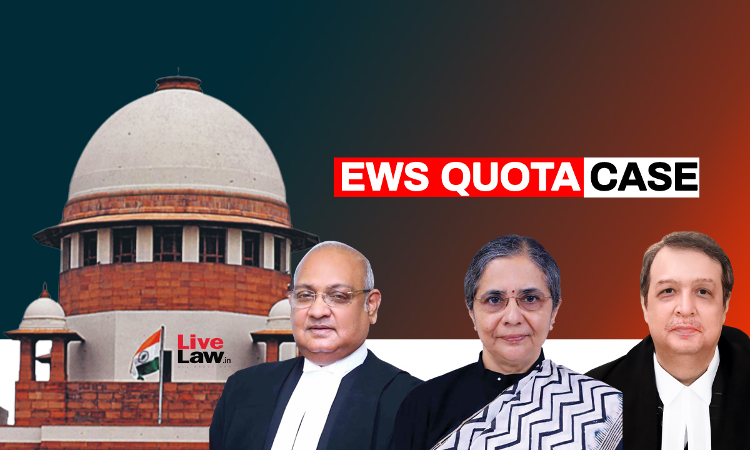SC/ST/OBC Exclusion From EWS Quota Logical, Necessary To Avoid Double Benefits: Supreme Court
Padmakshi Sharma
8 Nov 2022 11:15 AM IST

Next Story
8 Nov 2022 11:15 AM IST
The Supreme Court by 3:2 majority upheld the validity of the 103rd Constitutional Amendment which introduced 10% reservation for Economically Weaker Sections (EWS) in education and public employment. Justices Dinesh Maheshwari, Bela Trivedi and JB Pardiwala upheld the 103rd Constitution Amendment, Justice S Ravindra Bhat wrote a dissenting judgment, which was concurred with by the Chief...
